Advertisement Advertisement Advertisement Advertisement
‘BLUE economy’ refers to sustainable and inclusive water resource management that covers all coastal activities, marine-related industries, and services that could generate revenue and bolster socioeconomic well-being.
It also encompasses the energy (oil, gas and renewables), shipping, maritime, aquaculture, fisheries and tourism sectors and integrates environmental management, economic growth, and aquatic ecosystem sustainability. Over three billion people across the world rely on marine resources for their livelihoods.
Pakistan is presently confronted with one of its most formidable economic challenges. Given the circumstances, it seriously needs to diversify its economy to put the country back on track. Blue economy is a promising area that could strengthen Pakistan’s financial, geostrategic and geo-economic standing.
Here we discuss Pakistan’s blue economy, including its underutilisation. How can decision-makers and key players tap this economy’s potential for a self-sufficient and sustainable Pakistan, all the while keeping the country’s myriad challenges in mind?
Despite having the potential to generate more than $100 billion, Pakistan’s current blue landscape is limited to generating an estimated $1bn. Most of it comes from fisheries, coastal tourism, and marine revenue, but the lack of modern industries such as energy and minerals restricts its potential. Meanwhile, regional states are making billions of dollars from this sector.
The country’s maritime potential remains to be tapped.
Owing to last year’s devastating floods, there is an immediate need to tackle food insecurity in Pakistan. The coastal areas can be used to breed fish for commercial purposes, with a potential yearly value of $2bn; but, seafood export revenues are now only around $450 million, according to estimates.
Pakistan hasn’t fully capitalised on its proximity to the Arabian Sea and the Indus river basin, despite the rising demand for aquaculture products from domestic, Chinese and Indian markets.
Inadequate financial resources, political uncertainty, weak enforcement of the law, technological gaps, and poor awareness of and expertise in sustainable methods have hindered the country from harnessing its blue potential. This in turn is contributing to greater food insecurity.
Blue economy emphasises sustainable development while preserving biomass like marine life and coastal resources. This could help solve the country’s protein shortage by increasing seafood consumption. Meanwhile, the mangrove system is also said to have the potential to yield $20m.
Pakistan’s coastline is 1,050 kilometres long and has an Exclusive Economic Zone of 290,000 square kilometres.
The country’s location on the Arabian Sea, bordering India to the east and Iran and Afghanistan to the west can make it the hub for shipping goods across South Asia, the Middle East, Africa and beyond, helping the economy profit from regional trade and global markets.
It also offers transportation, tourism and ecological services like storm protection and carbon storage, which can boost local economies.
Pakistan has been unable to realise its potential as a marine hub. Reports on the subject have cited the reasons as: poor port access, limited finances for infrastructure renovations and modernisation, outdated policies discouraging foreign investment, fragmented governance, marine pollution, degradation of the mangrove forests, a lack of local technical and professional skills and an incompetent managerial and bureaucratic set-up.
Figures estimate that maritime tourism accounts for $300m of GDP. Current maritime revenue projections are far behind India’s at $6bn and Bangladesh’s at $5.6bn. Unfortunately, earnings from Pakistan’s tourism industry are a mere 0.4 per cent of GDP, compared to Thailand’s at 18pc, Malaysia’s at 6pc, and Sri Lanka’s at 6pc. Unfortunately, it is South Asia’s least competitive travel and tourism country.
According to some experts, if the travel and coastal tourism sectors were to be improved to international levels, they could even contribute up to 10pc of GDP by the next decade or so.
Under CPEC, Gwadar Port when fully functional offers great potential to aid in revitalising Pakistan’s blue assets.
Gwadar’s airport development, free-trade zones, IT parks, BPO operations, energy production and storage, mineral extraction and export, and electricity linkages through an industrial corridor could accelerate local economic growth through resource mobilisation and attract substantial foreign direct investment.
If Pakistan were to achieve long-term growth and reap dividends from the blue economy, it has to adopt and put into practice a rigorous, localised, and sustainable policymaking framework on a war footing; a framework that draws inspiration from the achievements of its South Asian neighbourhood, Asean, and beyond.
The writer is an Islamabad-based political economist.
Published in Dawn, February 4th, 2023
Latest Stories
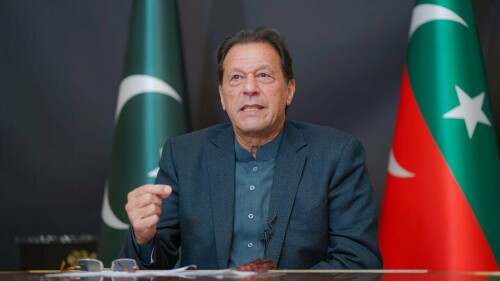
Imran accuses PDM govt of using terrorism to gain ‘political mileage’
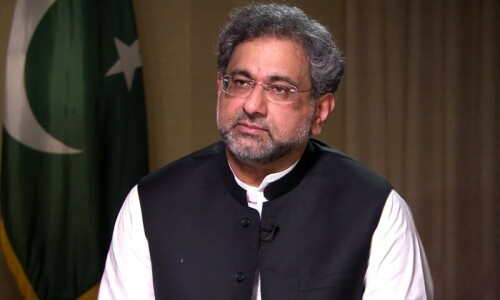
PML-N’s Shahid Khaqan Abbasi lends support to new law proposing 5-year jail term for defamation of army, judiciary

Feroze Khan’s lawyer approaches FIA to take legal action against Muneeb Butt for ‘defamation’
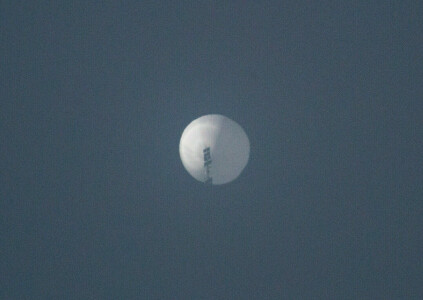
Beijing says US media, politicians used balloon incident ‘as pretext to smear’

Cricketer Mohammad Hafeez is heading back to university to complete his education
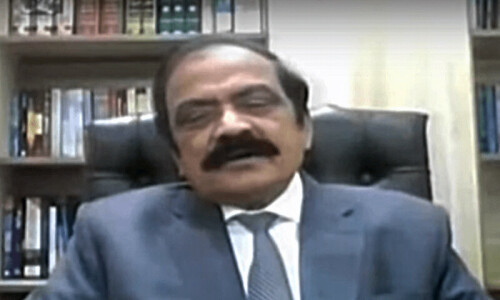
Bajwa, Faiz were ‘facilitating’ Imran till their retirements: Rana Sanaullah

Feroze Khan’s lawyer approaches FIA to take legal action against Muneeb Butt for ‘defamation’

Cricketer Mohammad Hafeez is heading back to university to complete his education

Spanish fashion designer Paco Rabanne, who brought the space age to the catwalk, dies aged 88
Advertisement
Most Popular
01
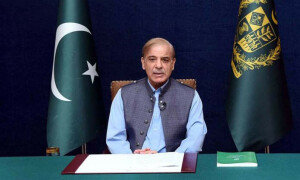
IMF giving tough time to finance minister, team during talks: PM Shehbaz
02
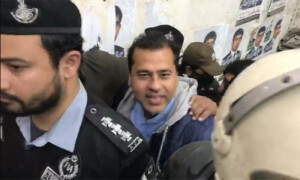
Lahore court orders release of TV anchor Imran Riaz Khan
03

Frontline Peshawar
04
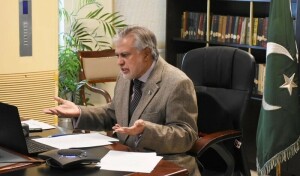
Dar looks to philanthropists to collect dollars
05
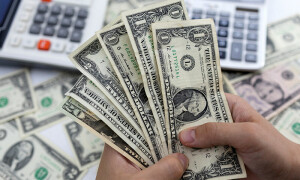
Pakistan’s forex reserves with SBP drop to 9-year-low of $3.09bn
06
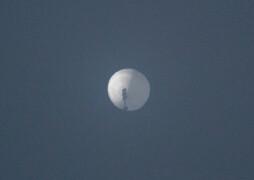
Chinese ‘spy balloon’ flies over the United States: Pentagon
07

Poverty of thought
08
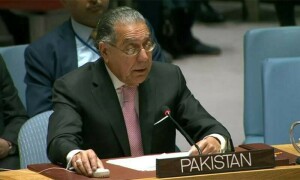
Small minority, not Pakhtun culture, keeps women at home: Akram
09
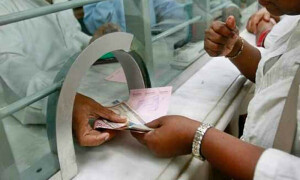
Federal govt servants must disclose assets to open bank accounts
Must Read
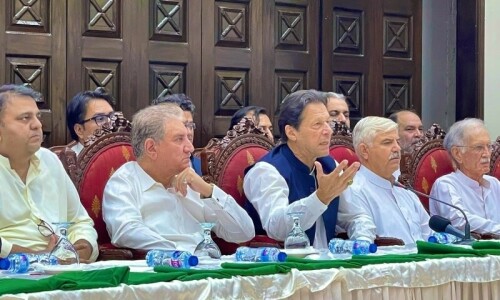
Editorial: PTI should rethink its stance on the APC in view of its responsibility towards the nation’s affairs
PTI's refusal to engage with the govt in such testing times will only be seen as sign of ideological bankruptcy.

IMF is part of the US-constructed ‘rules-based’ global order, but our woes are homegrown
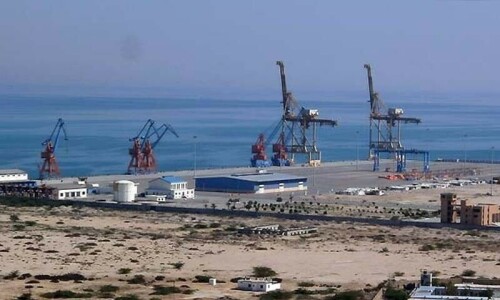
Pakistan must explore the potential of blue economy to strengthen its financial and geostrategic standing
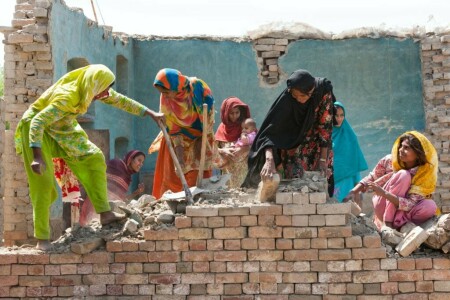
After the deluge, how to build a green recovery in Pakistan
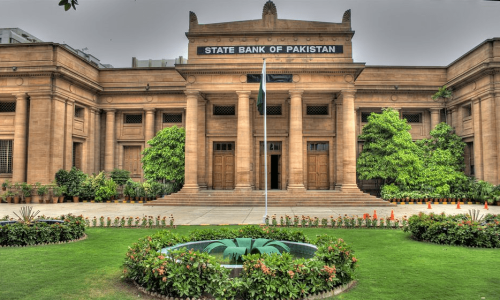
Note to SBP: Keep the communication clear and consistent
Advertisement
Opinion

The IMF in perspective
It would be useful to introspect if the IMF has arm-twisted Pakistan into this situation.

04 Feb, 2023
Doomsday Clock 2023

04 Feb, 2023
Aafia’s trauma

Updated 04 Feb, 2023
Blue Pakistan

Updated 03 Feb, 2023
Poverty of thought
Editorial
Updated 04 Feb, 2023
Crisis conference
PTI's refusal to engage with the govt in such testing times will only be seen as sign of ideological bankruptcy.
04 Feb, 2023
Revenge politics
A SENSE of déjà-vu prevails as cases pile up against PTI politicians, many of whom, along with their allies and…
04 Feb, 2023
Inappropriate remarks
OFFICIALS of the state, especially when representing the country at international forums, need to choose their words…
Updated 03 Feb, 2023
Delay in the offing?
Govt must realise that political stability in the country cannot be achieved by extra-constitutional actions.
03 Feb, 2023
Divisions in PML-N
DISCORD and drama in PML-N ranks escalated this week when Shahid Khaqan Abbasi revealed he no longer holds a party…
03 Feb, 2023
Wikipedia ‘downgrade’
ATTEMPTS to police the internet by states, often by giving opaque justifications for the action, are never a good… Advertisement





